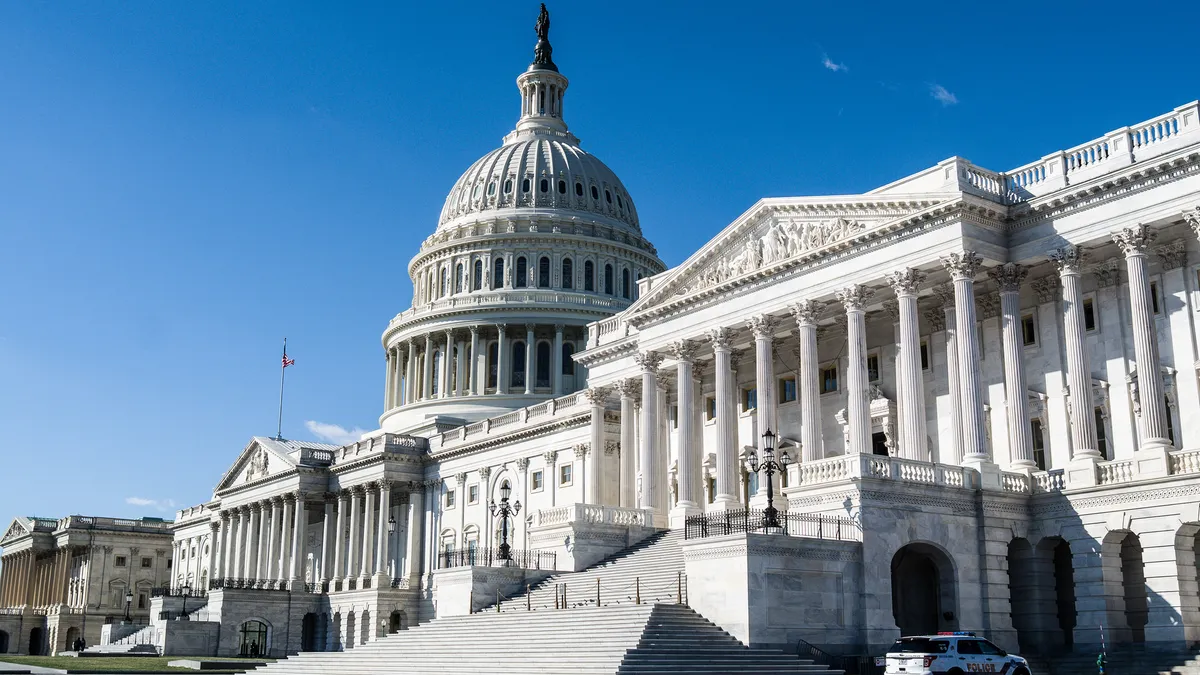Dive Brief:
- Rep. Bobby Scott, D-Va., chair of the House's education committee, introduced a bill Monday that would give colleges $1.2 billion in emergency aid for students affected by the coronavirus pandemic.
- Colleges could also receive part of an additional $1.2 billion that would help K-12 and postsecondary institutions plan for closures and make sure buildings are safe for students' return.
- The bill comes as colleges scramble to move their classes online to help stem the outbreak of COVID-19, the respiratory illness the virus causes.
Dive Insight:
Colleges nationwide have been promoting social distancing by moving classes online, extending spring breaks and telling students to leave campus if they are able.
There have been more than 5,800 confirmed cases of COVID-19 in the U.S. as of Tuesday afternoon, according to data gathered by Johns Hopkins University, though experts agree the number is likely much higher due to a shortage of testing kits. More colleges are likely to shut down their campuses and in-person services in the coming weeks to help curb the outbreak.
Observers have noted some of the closures may put students' housing and food supply at risk, especially if they rely on their campus meal plans and dorm rooms. Community colleges may be particularly impacted because they often have higher shares of low-income students.
Moreover, some students struggle to take online classes because they don't have a reliable internet connection or a computer in their homes.
The bill means to address some of those issues. If passed, students could receive up to $1,500 in emergency aid to purchase computers, food, housing, health care and child care.
The program would prioritize institutions with large populations of students affected by the coronavirus, Jonathan Fansmith, director of government relations at the American Council on Education (ACE), told Education Dive in an interview.
Though ACE strongly supports the bill, he said, "there's going to be a lot more need than $1.2 billion would appropriately cover."
The bill would also relax some federal rules around students' Pell Grant eligibility. Students would no longer lose access to the program if they didn't complete enough credits as a result of the coronavirus outbreak.
"It really holds students harmless for things that are beyond their control," Fansmith said.
However, he doesn't expect the bill to pass as a standalone piece of legislation. Rather, some version of the bill would likely be folded into a larger spending package that Congress would put out to address economic fallout from the pandemic.
The Hope Center, which tracks student housing and food insecurity, has put out guidance to help colleges support students' basic needs during the outbreak. It suggests campus food pantries prepare bags of food or meals that students can pick up and that counselors help them find alternative housing arrangements.
The center also notes that students may lose out on critical income, such as from their work-study jobs, if campuses shut down.
To that end, the U.S. Department of Education announced this month that colleges can continue paying students for work-study jobs if their campus closed after the term started, among other requirements. Some state governments, such as Texas, have also relaxed work-study rules so students can continue receiving payments.















